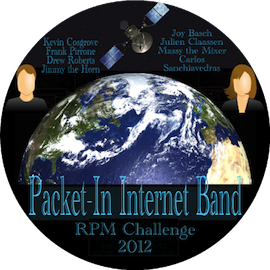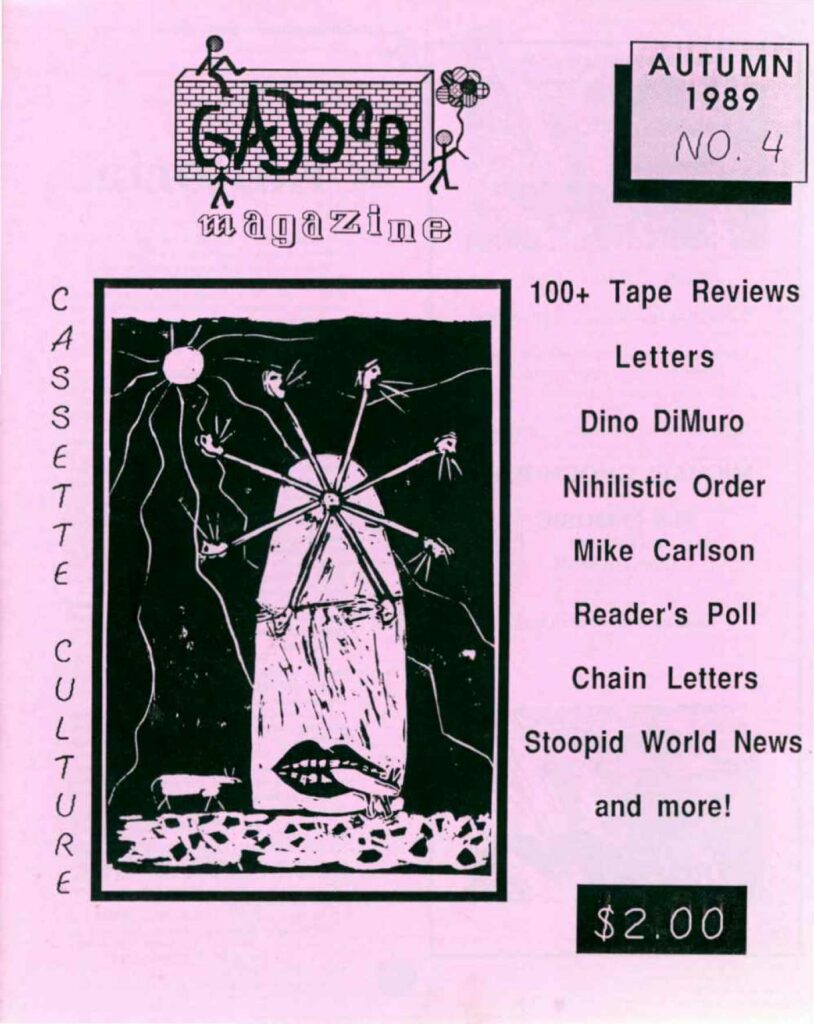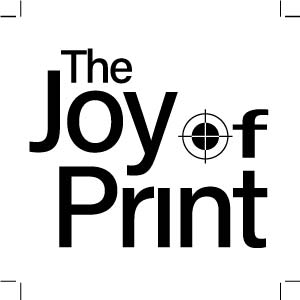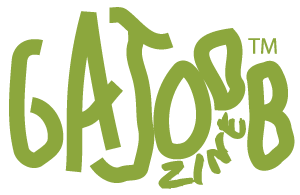Your cart is currently empty!

Packet In Internet Band Interview (2015)
This interview was conducted in the forums at gajoob.org in 2015. It centers on an online collaboration project the participants called “Packet In”
BRYAN: I’m gathering, following links from archive.org and other places and making some (possibly incorrect) assumptions, that you’re the lyricist for the Packet In project and maybe the webmaster. Are you also found on songfight.org?
drewRoberts: Bryan, I do/did write lyrics for Packet-In but others did too. Frank for one, and possibly others, I would have to go back and refresh my memory, we haven’t don a project in a while now.
I am not the webmaster and I do not host the site.
I don’t think I know of songfight.org.
I am also found at:
https://zotzbro.blogspot.com
http://ccmixter.org/people/zotz/profile
http://archive.org/search.php?query=%22drew%20Roberts%22
https://www.youtube.com/user/zotzbro/videos
http://www.advogato.org/person/zotz/
https://www.flickr.com/photos/126739923@N05/
and too many other places….
BRYAN: How did Packet In come about?
fpirrone: There is a History section on packet-in.org that’s both informative and interesting…in fact the whole site is worth at least a cursory look. Some particularly relevant sections:
(the following links are defunct but I have them here as reference to the wiki which is an extraction in progress) –bb
http://packet-in.org/wiki/index.php?title=Band_History
http://packet-in.org/wiki/index.php?title=Collaboration_Process
http://packet-in.org/repo/
In any event, it was a most enjoyable and satisfying collaboration of folks who never met but who came together virtually to have fun and make music!
BRYAN: There’s certainly a lot of information there, along with letters about your thoughts around the time you were forming the project. Anyone interested in digging into how that developed should really go there and read all about it. (The site is now inaccessible).
BAND MEMBERS
Julien Claassen [http://juliencoder.de/ web site]
Packet in wiki
Frank Pirrone [http://www.onzoguitars.com defunct]
Ken Restivo [http://www.restivo.org/blog/ defunct]
Kevin Cosgrove
drew Roberts [http://zotzbro.blogspot.com/ web site]
Jeff Mashaw [http://jmashaw.com/ defunct]
Peter Lutek [http://www.peterlutek.com/ web site]
But I was hoping you could summarize for GAJOOB readers and also provide a little background. How did the members initially come together, etc.?
fpirrone: I’ll get things started, but defer to Drew who played the greatest role in pulling everyone together and pointed at RPM 2008 http://www.rpmchallenge.com/ to answer your question more fully.
The collaboration began with a series of discussions on the Linux Audio User listserv ( http://lists.linuxaudio.org/listinfo/linux-audio-user) in late 2007 on how folks could compose and record music across the Internet without ever meeting in person.
Much of the initial conversation focused on the technology required and the mechanism for this joint effort. With all of the eventual participants being GNU/Linux users, the rallying points that developed were the exclusive use of Free (libre, freedom) and Open-Source (F/OSS) software and the use of a Creative Commons copyright.
As things coalesced a collaboration server and Wiki ( http://packet-in.org/wiki/index.php?title=Main_Page defunct) was set up and people climbed aboard, eventually involving Drew in the Bahamas, Peter in Canada, Julien in Germany, Carlos in Spain, Jeff in Arizona, Ken in California, Kevin in Oregon, and me in New York.
Further discussion resulted in a name for our effort and a theme for our first RPM participation, and the LAU Chillout Band later called Packet-In was off and running.
Our work from the first two years of the collaboration can be heard on the RPM site at:
(these links are both defunct)–bb
http://lauchilloutband-thegnocatsproject.rpmchallenge.com/
and
http://packetin.rpmchallenge.com/
BRYAN: Thanks, Frank. Chime in when you can, Drew. I am interested in how you pulled everyone together and how RPM works (how did that help you work?). Incidentally, I started an Internet collaboration collective back in May 2000 called Tapegerm http://tapegerm.com which continues, so I’m naturally interested in how collaboration projects such as this come together and evolve and how they develop their own unique dynamic. Feel free to expound upon that or anything else you believe is pertinent.
In Tapegerm, there were many discussions about how to exchange files. We primarily worked with loops rather than full tracks. The music was essentially experimental or electronic. First the sources were emailed to me and I hosted them on homemademusic.com as an open project there, then 4 or 5 people got really interested in taking it further and we formed a group and worked out various drop methods and eventually taught everyone FTP.
How did that technical exchange process develop with Packet In? How did you discuss songwriting ideas in developing your songs? Did that process evolve as well? What obstacles did Internet collaborating present to you?
fpirrone: I don’t know who is reading or following these postings, but let me say a bit about the collaborative mechanism we eventually used, or that fell into place, for the edification of anyone who is.
These were several matters discussed and resolved as we got going and working toward that first RPM 2008 challenge, not necessarily in strict chronological order:
What software would be used in composing, submitting, mixing, and mastering our work?
Since this was a collaboration that arose on the LAU listserv previously mentioned, we were all committed to using only F/OSS http://en.wikipedia.org/wiki/Free_and_open-source_software and eventually would post our stuff under a Creative Commons license http://creativecommons.org/ that would allow anyone in the group or outside to use the tracks for any purpose as long as they attributed the material to us.
Where would we store the tracks as songs took form, the final versions of the pieces, and the finished mixed and mastered compositions?
This was resolved when Peter, the woodwind player from Canada, had access to Internet hosting and set up the Wiki http://packet-in.org that incidentally will probably be taken down soon since our collaboration has ended, so anyone interested should visit it now. There is a repository of individual tracks and finished compositions (defunct link) that will allow anyone to follow how each song took form.
What file formats would we use with consideration to size and load on the server, fidelity, and compatibility?
We decided to upload work in progress as Ogg Vorbis files which were readable by the various software packages the participants used and which were both decent fidelity and small enough to handle during the creative process. This kept the load on the server under control, while providing a sufficient soundscape to follow as the songs developed.
Final tracks would be submitted in lossless FLAC format https://xiph.org/flac/ which would also be used in the completed mixed and mastered works. Some conversions of the songs were posted as MP3s that anyone coming across our songs on the Wiki site could listen to.
How would the songs be started, grow and be contributed to, be finalized, and be rendered in their finished form ready for submission to RPM 2008?
The process and procedures we settled upon to address these issues ultimately proved to be quite efficient and effective. Since we were largely mulit-instrumentalists the person originating an idea for a song would upload a concept track, instrumental, vocal, both, whatever, that possessed as much of the scaffolding as possible – chord progression, verses and bridge, chorus etc., with as much of the tempo, timing, and structure as required to convey the idea the originator heard in his head.
It wasn’t strictly necessary to include all this, since anything liked by the group could be strictly fleshed out later…but many pieces did arise directly from these concept tracks in our RPM 2008, 2009, 2010, and 2012 participation.
Our lyricist Drew, from the Bahamas, and drummer Kevin, from Oregon, had somewhat different roles, with Drew posting his prolific poetry writings for consideration as song lyrics, and Kevin holding back until something took form before adding his drum parts.
The concept track would be downloaded by whomever got to it next, and they would add their instrument or vocal or harmony or sometimes comments, though the latter didn’t happen too often, and it didn’t prove necessary to conduct much of a discussion, as the songs quickly took on a life of their own.
What other issues were encountered and decided upon?
We used a sync tone file (http://packet-in.org/repo/RPM10/six_second_sync.ogg defunct) that the originator would place at the beginning so the tracks to be added could be easily and precisely aligned, and the submissions were normalized in volume and rendered generally as the person contributing them heard in his head as fitting in with the song taking shape.
No real conflicts arose, but as Julien, in Germany, Carlos, in Spain, Jeff, in Arizona, Kevin, in California, and myself in New York, all played multiple instruments and/or sang, we did discuss what we would do if someone other than the originator of a composition were to produce a better track than who got to that particular instrument or vocal first.
Since this was essentially an open collaboration, anyone even stumbling across our work was welcome to submit a concept or a contributed track, we left it that if subsequent submissions were better than the original we could decide to use the one or ones the group preferred, but as previously said, for whatever reason this conflict and decision point never arose.
The task of final mix down and mastering fell largely to Peter, who was free to process and alter any of the component tracks as he saw fit in producing the finished piece. This included adding effects, and sometimes warping the original to a considerable extent, always with great taste and musical creativity.
The completed CD worth of songs were submitted in an upload to the RPM challenge by Drew, linked to previously, where they can still be heard, along with other participating artists’ work, in the years we took part in the challenge, first under the LAU Chillout Band and then Packet-In…the latter of which, incidentally, was a play on words meaning both that we hoped that if our music were ever actually performed anywhere, we would pack in a real crowd, and that our music took form through packets of data flying across the Internet.
rotcod2015: VERY interesting!!!
fpirrone: I’m pleased you found it so, RotCod2015!
BRYAN: Do you have one or two favorite tracks in which you were involved that you could detail how they came together?
fpirrone: Yes, Ill pick three from our RPM 2008 collaboration that should be interesting and quite illustrative, Venus, Pluto, and Saturn.
We had chosen a space theme to initially focus everyone’s attention, though it wasn’t going to be a strictly themed CD, and all ideas were welcomed.
I surfed the Web and found telemetry recordings of the planetary probes http://www.svengrahn.pp.se/sounds/sounds.htm and uploaded them to Packet-In’s repository working directories (incidentally, Peter granted all of us full access to the site, so we could create directories and post stuff as needed to support what we were working on – and as a group of GNU/Linux geeks we made liberal use of this freedom).
I envisioned these sounds, processed to be more compatible/musical when needed, as backdrops for potential compositions, backbones even, if you will.
If you look at the directories for these three songs, and sort by the Last Modified link you can see the chronological order in which the songs took shape from the parts the players added. I’ll examine Venus in more detail.
http://packet-in.org/repo/RPM08/venus defunct
You’ll see that on 2/9/2008 Jeff picked up on the Cosmos 359’s signal, and put piano chords to it (you can listen to the individual tracks to hear the “ingredients” that went into each piece as we go along).
Ken downloaded the signal and Jeff’s piano track and on 2/10/2008, added his synthesized bass part.
Jeff refined what he had submitted on 2/14/2008, probably as a result of the synergy that was now taking place with Ken, and I uploaded a processed version of the signal on the same day.
Kevin uploaded his first conceptualization of his drum parts on 2/18/2008, submitting separate tracks for his excellent kit, followed by Ken’s upload of revisions to his first take on 2/20/2008.
At this point, with a direction for the song clearly, and I might add, quickly, taking form, I composed a lead guitar part based on a melody I created for the piece, wrote the lyrics, and recorded my vocal, all uploaded on 2/21/2008.
Kevin did a final take of his drums, and uploaded it on the same day, refining the individual recording of the various pieces of his kit.
Finally, Peter tossed in a positively killer sax part as color and frosting on the cake on 2/27/2008…and the composition and creation was complete in 18 days.
Now, realize this was occurring while we were simultaneously working on all the other tunes in progress in this short month of February to meet the RPM challenge of a complete CD wholly written and recorded within that short month, and we were actually slow to start!
Speed dating and slam poetry come to mind, LOL!
You’ll also find our CC attribution text file there, see a revision Peter made after the fact in July of his original sax part, and see a simple mix I did on 2/22/2008 of all tracks submitted to that point, not including Peter’s phenomenal sax uploaded after the sample mix was made.
You can hear the final mixdown and mastering Peter did of the entire composition here:
http://packet-in.org/repo/RPM08/CURRENT_RELEASE/packet-in_venus_master_v1.5.ogg defunct
Play this song while you read through the following paragraph:
The song starts with the telemetry signal, followed by Ken’s bass along with Kevin’s drums, followed by Jeff’s piano, followed by my guitar, followed by my vocal interspersed with my guitar fills, where you can hear the melody of the piece expressed. Finally after a diminuendo where the song just simmers for a while all hell breaks loose with Peter’s sax as he picks up the melody but takes it to a level I had nothing to do with, followed by a subtractive and spacey exit…and a big but inaudible exhalation, LOL!
This exact same thing can be followed with Pluto and Saturn and all the other pieces (give a listen to what Peter did with my vocal on Saturn, comparing my simple mix in the working directory, http://packet-in.org/repo/RPM08/saturn/saturn-frank_all_mix.ogg defunct with his final version http://packet-in.org/repo/RPM08/CURRENT_RELEASE/packet-in_saturn_master_v1.5.ogg defunct) for all the years we collaborated at:
http://packet-in.org/repo/ defunct
You’ll also find here Jeff handling the lead vocals with my providing backup and some harmony on Spaceman, One Hit Wonder, and Bits & Pieces, all with Drew’s lyrics.
Our best overall work was probably RPM 2009 (in 2010 we crapped out, didn’t even try in 2011, and in 2012, following a serious illness that left me unable to play, or sing as well as before, produced our swan song) where you’ll find simple mixdowns of each piece in their working directories, and the final mixed and mastered versions at:
http://packet-in.org/repo/RPM09/_final_mixes/ defunct
Here you’ll find Drew’s lyrics at work in Jack And Jill along with Julien’s sweet synth work, and Drew’s recitation on Audacity that I mixed with Julien’s fine piano, and Carlo’s paean to a friend, Teyssibro, with his acoustic guitar and my electric lead with Julien’s synth horns, a very cool Eca with my guitar and vocal chorus intermixed with Julien’s demonic rappish verses, and more in which you should be able to by now recognize each of the players, but turn to the individual songs with their component tracks for the author, sequence, time frame, and complete story (checking the attribution.txt files too).
Finally, let me tell you that being the geeks we are, the ballads and love songs and stuff all have a second meaning: Venus sounds like I’m singing about a love interest, but I’m really singing about the planets’ attributes! Jack And Jill sounds like I’m singing Drew’s lyrics apparently about a someday hopeful loving couple, but I’m really singing about a piece of F/OSS, the Jack audio connection kit!
Give them a listen with this in mind and see if you can hear the intendres doubling up…
BRYAN: Fascinating! I was listening to the 2008 album the other day and naturally gathered that there was a theme at play, at least in part, as you’ve confirmed. Thanks for the detail on how that all came together.
You said earlier in this thread that these pages are being taken down. I would like to house them as a more permanent, ongoing, project at tapegerm.com, if you don’t mind. At least the 2008 project files. Tapegerm works are similarly Creative Commons-licensed and non-commercial. It is most often experimental and I imagine the sound sources will experience a wide range of processing. I just like the idea of sounds being something that live on. I would reference this interview and keep the directory structure intact. Final Packet In tracks I would like to archive on archive.org.
I was reading this thread — http://linuxaudio.org/mailarchive/lau/2009/3/2/152989 defunct — on linuxaudio.org and was struck by how you said the resulting music of Packet In was tertiary to the Collaboration and to supporting Free and Open Source Software. Would you care to explain?
fpirrone: Have at it, Bryan, I couldn’t stop you if I wanted to, with the Creative Commons license under which this music was produced and released:
Attribution-ShareAlike 3.0 United States (CC BY-SA 3.0 US)
This license even grants commercial use. Ain’t Freedom grand!
http://creativecommons.org/licenses/by-sa/3.0/us/
I would ask that you grab and host both the 2008 and 2009 collaborations…I’ve got a real fondness for what happened in our second year, and feel free to archive(.org) our final tracks.
Using GNU Wget https://www.gnu.org/software/wget/
will get you all the material from both years.
As to my comment in that discussion thread you reference, in purely personal terms, I felt the highest act in which we were participating was the interpersonal collaboration, followed by advocating for, and advancing tools that grant that Freedom to anyone who’d like to follow in our footsteps.
In this context, I felt the music itself, despite its bring born with love and pride out of our creativity and talent, such as they may be, was almost incidental, merely the tangible medium in which we practiced the first two…
BRYAN: It should be interesting to see what continues to develop from these resources.
One last question: Do you think better music results from a F/OSS ethic?
fpirrone: That’s an interesting question, Bryan. A glib answer might be that everything is better with Freedom on it!
Incidentally, I resonate more with Stallman and Free (Libre) software, than I do with Raymond and open-source software, but by combining the two as F/OSS I’ve got the best of both worlds.
As to your question, I can’t help but feel there are benefits, both tangible and intangible, that flow from a F/OSS ethic, in coding, certainly, but also with music, especially collaborative music with copyleft Freedoms.
As I explained in my last reply, I, and I assume the rest of the gang, approached our project with a certain spirit of altruism, both toward the selfless sharing that was about to occur, and toward the art, such as it was, that we were about to synergistically produce, only to give it away.
My greatest disappointments were that no one came along and displaced what I did for something better of theirs, and that as far as I know no one “stole” what we did and made something of their own with it.
In such an atmosphere, something has got to transfer to the music in some way, whether its joy or the sense of sharing and gifting (to get back to Stallman and Raymond) or kindness or generosity..something has to elevate your art above commercial “products” wrapped in copyright and FBI warnings…
user image
BRYAN: That’s exactly what I was setting out to do with Tapegerm. I saw these homemade cassette albums people were sending me to review and thought, why don’t we extract some sounds from them and set them free. Let everyone take them and make something new. That way you get a new thing, but the old sounds keep on speaking. I think it’s a kind of dialog. Like a whispering of trees. Elevating your art is a good way of putting it, I think.
drewRoberts: Still too busy but I will try to give this some attention today.
I am happy to have the whole site hosted elsewhere if the current site is indeed going down. It is important to keep the current Free licenses though.
Unless another band member wants the job or objects for other reasons, I would like to upload the final tracks to archive.org. I already have an account and upload my work there.
Because of my time constraints, my contributions today will be mostly memory based and subject to correction (Frank, please jump in if something strikes you as no quite right) and later I hope to have more time to fact check myself.
I remember us having early email exchanges on LAU (Linux Audio Users mailing list) and some of us wanting to work together long distance. I remember wanting to use Libre tools and Libre licenses (Libre being Free as in Freedom [Speech]) which was up my alley. I remember the name LAUCB being chosen. LAU Chillout Band. This was all wll before the first February RPM challenge. I remember Peter setting up the Wiki and FTP site. (In case Frank did not mention it, we all had FTP accounts on the server and uploaded our work that way. I just skimmed most of his posts but may have missed his commenting on FTP.)
Frank, dod you remember if we had any completed songs under our belt before the first RPM?
fpirrone: Yes, Drew, I mentioned our FTP accounts on Peter’s site, and hinted at though I didn’t go into any detail that we also had administrative access, bring a trusted bunch, and that I was able to use that to do some programming such as automatic linking to whatever was uploaded, and an RSS feed.
Ken had quite a number of tunes done before RPM 2008, as did a guy who crossed our path but ultimately didn’t participate, Phillipe Hezane, in France. Julien also had completed some stuff, but we played by the rules and only submitted material that was started, finished, and uploaded within the Challenge month of February.
Bryan, this matter of Wiki and other account access to what you’re doing may be worth thinking about. We derived real benefit from the controlled but broad access we had to Peter’s site.
There was never a breach of this trust, or any inappropriate access, though we did have a real run of spam accounts being set up by people or bots.
The bottom line here is Freedom – as in access, trust, and ultimately enhanced collegiality…
BRYAN: Tapegerm operated under similar methods. Everyone uploaded loops to their own directory and had access to the loops in everyone else’s directories. There was never any foul play in the FTP area, but plenty of spam and bots in the CMS website, which appears to be the case with Packet In as well.
Drew, I’d like to gather the Packet In audio stems and make them available as a longterm project on tapegerm.com. It’s a free website for experimental music collaboration with a Creative Commons share-alike ethic. While I would link to this interview and probably LAU for more information, I wouldn’t be able to host the entire Packet In website and wiki. I’m just interested in documenting the creative collaboration that happened in Packet In, while keeping the sounds alive for further exploration.
by
Tags:
Comments

- Ads (3)
- Albums (138)
- Artificial Intelligence (1)
- Audio Art (13)
- Books (3)
- Briyan (1)
- Business (5)
- Cassette Culture Shock (3)
- Channels (2)
- Collaboration Projects (4)
- Comics (1)
- Creative (10)
- Discover Sounds (1)
- Editorial (2)
- GAJOOBTube (2)
- Gear (8)
- Instruments (4)
- Interviews (9)
- Labels (14)
- Letters (3)
- Library (14)
- Links (5)
- Merch (2)
- News (2)
- People (17)
- Performance (1)
- Podcast (1)
- Profiles (29)
- Projects (0)
- Tapegerm (6)
- Uncategorized (7)
- Video (3)
- Video & Vlogging (0)
- Vlogs (1)
- Websites (6)
- Zine Making (1)
- Zines (11)

*Purchasing via Amazon affiliate links helps support our efforts at no additional cost to you. Thank you!


Leave a Reply
You must be logged in to post a comment.